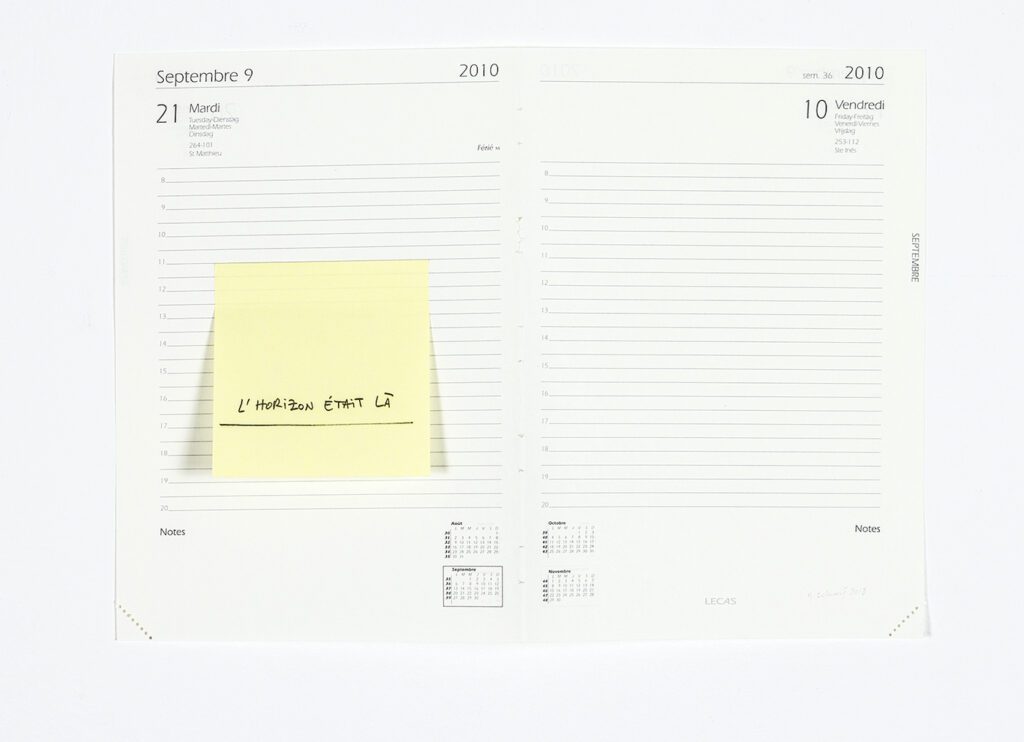Salzburg International Summeracademy of Fine Arts, Salzburg, Austria
Deadline: 01 April 2020

Massinissa Selmani, l'horizon était là, 2018 Photo: Massinissa Selmani
Intensive workshops of between one and four weeks, dealing with topical questions of art production and directed by outstanding artists from all over the world – this is what awaits you at the Salzburg International Summer Academy of Fine Arts.
Under the motto New horizons, the 2020 course programme seeks new possibilities for the creative artist, curator or writer to define their own position in the world in which we live. How, in times of worldwide rebellions, shocking consequences of climate change and unequal distribution of resources, can new horizons be conquered?
The programme of the 2020 Summer Academy aims to tackle fundamental questions of art, text and curatorial production. Today, like many people, creative artists hardly have time in their daily lives to devote serious consideration to their work and to discuss it with others. This is precisely what the Summer Academy offers: our students take a few weeks to talk over fundamental aspects of their work with teachers and fellow-participants, discovering new points of view, new ideas and new theories. At the same time, they continue to develop their own work, putting into practice what they have learned and exhibiting it for public review at the end of the course..
“What makes a world?” philosopher Catherine Malabou asked her students. Her own answer to this question was “a horizon”. This anecdote – the question and answer – serves as a starting-point for Nadira Husain’s course. In a way, it is the starting-point for all the courses, as well as for the considerations underlying the present programming: “What constitutes the world?” There follows the inevitable question of how one sees one’s own role in the world, and of what new perspectives might open up in times of global revolt and in the situation we find not only in Austria and Europe
The courses
Four artists – Brenda Draney, Thea Gvetadze, Nadira Husain and Tobias Pils – develop new, individual approaches to painting. Focusing on video, photography, digital images and archives are Bani Abidi, who recently attracted much attention with her exhibition in the Gropius building in Berlin, Randa Mirza and Lara Tabet from Lebanon, and Eli Cortiñas, who works mainly with “found footage”, snippets of film previously made for a different purpose. A four-week course in the Untersberg quarry with Cäcilia Brown, Anna Hofbauer and Mikkel Holm Torp introduces participants to the technique of stone sculpture and much more. Caroline Achaintre – once described by a student as a magician – will use a variety of media to approach the “Self” and the “Other”. By contrast, in their interdisciplinary course, Sammy Baloji and Lotte Arndt define “vocabularies for counter-histories”.
Noële Ody and Toni Schmale direct a course in sculpture and installation. Traditional techniques, such as a variety of printing techniques, can be learned in Vaclav Pozarek‘s course, and this year’s programme includes drawing classes taught by Massinissa Selmani and Danish artist Per Dybvig. With the aid of a photocopier, Cameron Jamie devotes his course to the D.I.Y. artist’s book, and Kurdish artist Ahmet Ögüt teaches lecture performance.
Political questions faced by curators will be under discussion with Nicolaus Schafhausen, whose ground-breaking exhibition Tell me about yesterday tomorrow can be seen in the NS-Dokumentationszentrum in Munich until summer 2020. A further curatorial course is directed by Marina Fokidis, and art critics and journalists Louisa Elderton and Klaus Speidel will teach how to write on art.
Global/Planetary Academy
On the basis of our long-standing work on the Planetary Academy (formerly Global Academy) project, our present aim is to create an innovative space for meeting and discussion which does justice to the concept. Europe’s colonial past is a fact to which post-colonial discourse involves reaction, and this plays a major role in our Programme of Events. We can and must, however, go further still, creating new spaces defined beyond the duality of colonial and post-colonial. The term “space” is used here metaphorically, as a place in which the roles of colonialiser and colonialised are understood historically, to enable post-colonial achievements to form a basis for new encounters and discussions, perceptions and activities. This ultimately puts us in the tradition of Oskar Kokoschka’s founding idea and his humanist and pacifist ideas.
Detailed descriptions of courses and biographies of the teaching artists, curators and writers are available at: www.summeracademy.at/en/courses/
Application, grants, deadlines, fees
Course fees are between € 450 and € 1,200, depending on duration. Some 80 grants will be awarded. Applications for grants should be submitted (online only) by 1 April 2020.
Details: www.summeracademy.at/en/studies/grants
In 2020 for the first time there is a special grant: The Bisi Silva Grant is dedicated to the founding director of the CCA (Center for Contemporary Art) in Lagos, Nigeria, who died, far too early, in January 2019. Through her initiative, co-operation with the Summer Academy has been carried on since 2012, awarding several students from African countries grants for participation in our courses. The Society of Friends has now established a grant dedicated to Bisi Silva, one of the most important figures in the African art world. The number of grants annually depends on the sum raised. A grant covers fees as well as travel and accommodation expenses for students.
All applications received by 30 April 2020 will be treated equally. Later applications are welcome, and will be processed in the order received, according to vacancies in the courses.
Details: www.summeracademy.at/en/studies/application